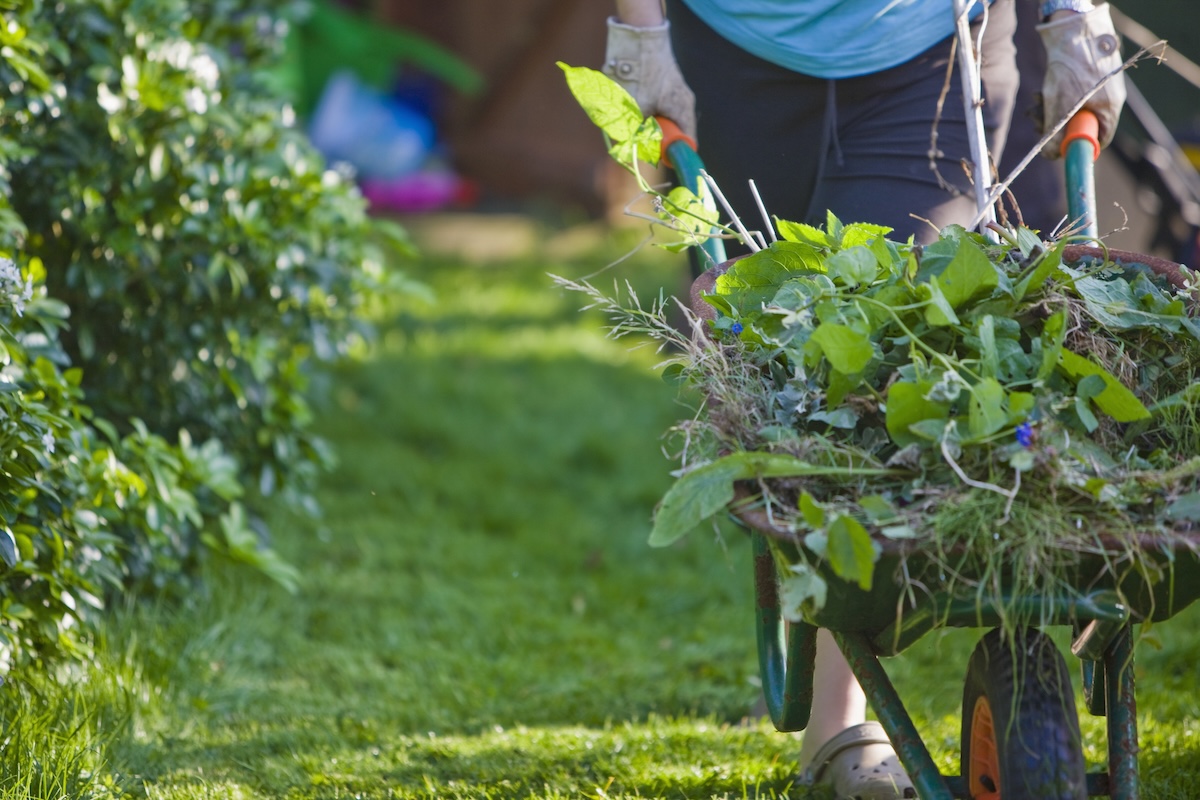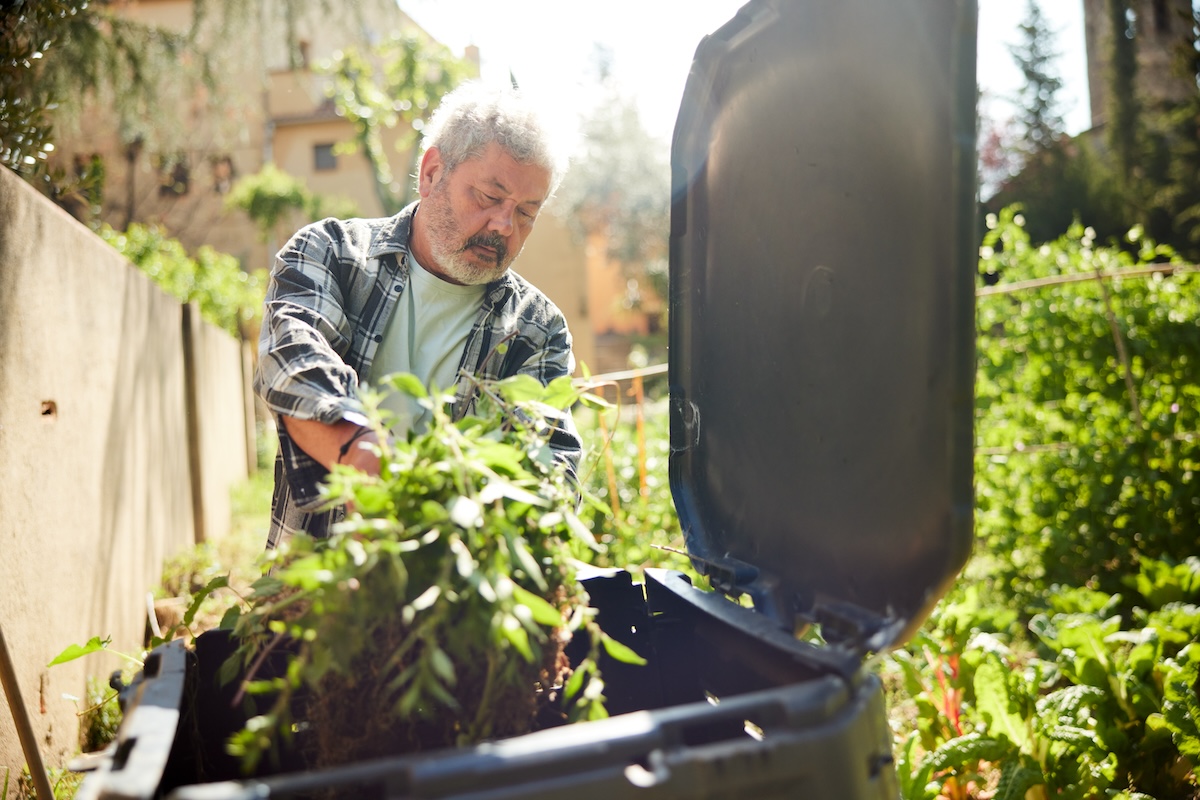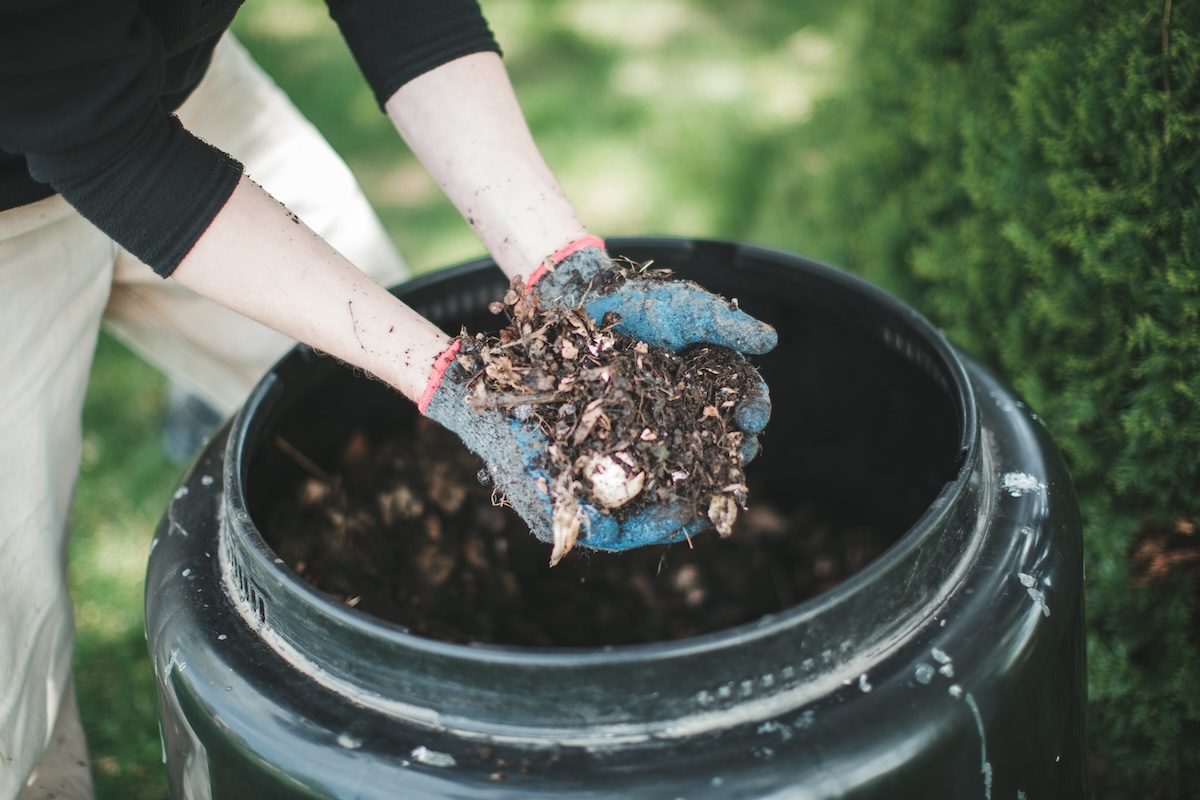

We may earn revenue from the products available on this page and participate in affiliate programs. Learn More ›
Weeds are the bane of every gardener’s and landscaper’s existence. Getting rid of these uninvited, unwanted, unloved plants takes time and effort, but once weeds are successfully removed, what should you do with them?
Can weeds be composted? Yes, weeds can be composted—with some exceptions and a few precautions. As long as the seeds and roots are killed, you can safely compost weeds without fear of germination of future weeds in the garden. Composting weeds, when done properly, is a sustainable way to produce a useful soil amendment that nourishes plants and the soil food web, according to Scott McLeod, arborist, certified master gardener, and owner of McLeod Landscaping in Massachusetts. “The carbon provided by the weeds helps create a fertile, crumbly compost that contributes to plant health and productivity.”
In short, yes, you can compost weeds.
Composting, the biological process that converts organic material into a highly prized soil amendment through decomposition, provides numerous benefits. It amends and approves the physical and chemical properties of the soil, resulting in valuable nutrients for plants. Additionally, composting is a safe, valuable method for disposing of organic matter like leaves, grass clippings, wood chips, shredded newspaper, hay, straw, plants, coffee grounds, and other table scraps (excluding animal products and byproducts). But are weeds compostable?
Composting weeds can create great soil fertilizer and help retain moisture around plants or shrubs. Using weeds as compost is how to dispose of weeds efficiently in an environmentally friendly manner.
Before putting weeds in compost, check to see if they’re on the invasive list. There are weeds that should not be composted, such as dandelions, Johnson grass, mugwort, Japanese knotweed, couch grass, bindweed, and creeping buttercup.

Traditional hot composting is the best method.
“Hot composting is the process of creating optimum conditions for decomposition, like the proper carbon-to-nitrogen ratio, enough moisture, and required aeration,” explains Nathan Thorne, horticulturist at Handy Flowers. All this microbial activity produces heat, raising the internal temperature of the pile to 130 to 160 degrees Fahrenheit and killing weed seeds and pathogens.
It’s necessary to maintain a temperature of at least 131 degrees for 3 days, states Josh Payne, owner of Classic Gardens in Canada. For best results when placing weeds in a compost pile, particles should be no larger than 2 inches, and the pile should be a minimum of 4 feet high, 4 feet wide, and 4 feet deep. The pile should be turned every week.
Alternatively, enclosed compost tumblers can also generate sufficient heat. To test, use a compost thermometer like this highly rated option available at Amazon. Compost should be finished in 2 to 3 months, although smaller compost piles may take as long as 2 to 3 years to kill weeds and their seeds.
Why Hot Composting for Weeds Is Preferred
Why Hot Composting for Weeds Is Preferred
High temperatures in hot composting kill seeds and pathogens in the weeds in compost bins so they will not germinate in your garden, Thorne explains. It will also kill pests and disease remnants.
Hot composting for plants is typically preferred because it’s usually fast and efficient. It tends to break down organic material more quickly than other methods—if done properly. Compost piles need the right blend of greens and browns, aeration, insulation, 45 to 60 percent moisture level, sunlight, and a minimum of 131 degrees Fahrenheit to do the job.
Cold composting weeds often requires pretreatment.
Cold composting is a passive method that typically requires 1 to 2 years for organic material to adequately decompose. Thorne defines it as a “slow decomposition without an act of temperature management of your pile.” He adds, “It’s less effective at killing weed seeds and requires longer processing times.”
Chopping up or shredding weeds can speed the process. The decomposition rate can also be impacted by the type of organic matter and the method: pile, bin, or tumbling composter.
“Cold composting can work,” McLeod says. “But weeds should be pre-treated by drying, chopping, or solarizing them before adding to the pile.” There are other alternatives that can help as well:
- Desiccating: Lay weeds on concrete or corrugated iron and allow the sun to dry them for 2 to 3 weeks. Do not lay them on grass.
- Bagging: Place weeds in a compostable bag, cover it with black plastic or anything to block the light, and leave until the plant material begins to break down. Note: this may not kill off all the seeds.
- Solarization: Place weeds in black plastic and set in direct sunlight.
- Fermentation: Bury weeds under anaerobic conditions with water in an airtight container for several weeks to months. Note: unpleasant odor may result.

Avoid composting weeds treated with chemical herbicides.
Don’t put weeds in the compost heap if they’ve been treated with herbicides. As Thorne says, “Keeping weeds that have been sprayed or dusted with inorganic chemicals out ensures compost of good quality for the health of the soil and plants in the garden.”
Some herbicides don’t kill weed seeds. McLeod says, “Their rhizomes and seeds can survive composting and spread. It’s best to contain them in bags before putting them in the municipal waste stream.” Other herbicides are so toxic they’re not safe for compost for plants. The chemicals can persist and contaminate the compost.
“Residues from herbicides in treated weeds have a way of surviving in compost and can be toxic to beneficial microbes in the compost,” says Matthew Wilson, CEO of Handy Gardeners. “Hence, such weeds affect the plant’s health. Do not put in any weeds that have been treated.”
